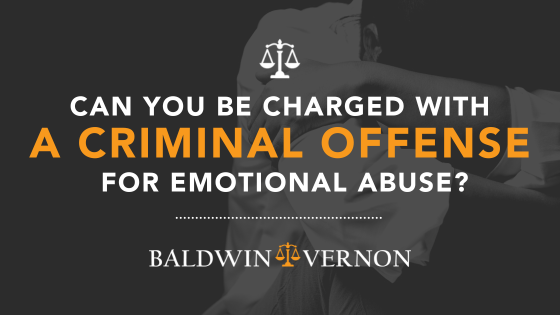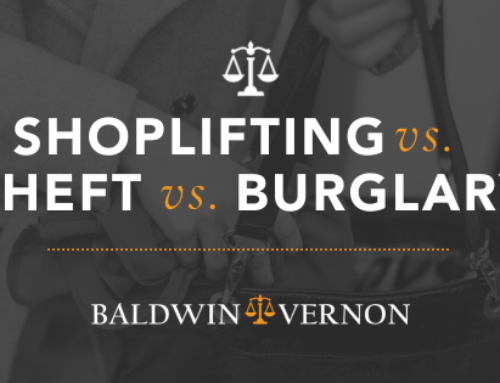While abuse is regularly seen as physical, emotional abuse can be just as dangerous, scarring, and illegal. It is important not to get emotional abuse mixed up with a simple spout you might have with your partner over who empties the dishwasher. If proper communication is done and it ends with both parties smiling and working together, it is easy to say that it was not an emotionally abusive situation. However, when certain lines are crossed, it could lead to emotional abuse and then a possible criminal offense.
So, to keep yourself informed, no matter what side you are on, let’s better understand emotional abuse and its meaning.
What Is Considered Emotional Abuse
Emotional abuse is more than a small argument you have with your spouse. We often say things out of anger and regret them later, and usually, they do not cross a legal line; however, there are some instances where they do. If you are to say something that emotionally dominates or controls the other, this could be abuse. Additionally, statements that intimidate or cause the other party to feel fear for their life or those around them, such as children, can also be considered emotional abuse. Emotional abuse is when one person seeks to control the other through fear.
Examples of Emotional Abuse
One of the easiest ways to spot emotional abuse is when someone says, “I am going to harm you.” This threatens someone’s well-being and is no longer considered just a simple spout between partners. This would be labeled a criminal threat as it revolves around harming someone else. Stalking is another example of emotional abuse. If you make someone fearful of their safety by following, harassing, or threatening them, you could be considered emotionally abusing them.
Entering a person’s home or workplace when you are not invited, essentially trespassing, with the intent of carrying out a criminal threat, even if no physical contact was made, is also an example of emotional abuse. Lastly, cyber-harassment with the intent of causing emotional distress is also an example.
Why You Can Be Charged With a Criminal Offense
With all those examples in mind, emotional abuse is considered a crime when it becomes an intentional threat. Simply saying things out of anger without a threat behind it will not be seen as abuse, but once you add language about harming yourself, the other party, or others, you have effectively committed a criminal offense and can be charged. If the other party reasonably views what you said as a threat, you can be charged with a criminal offense. When an argument changes from a simple fight to threats and safety being compromised, it is safe to say that your actions are now seen as against the law.
So akin to reasonable gun controls that put limits on our Second Amendment rights, there are criminal statutes that put limits on our First Amendment rights.
Here are some examples of crimes related to emotional abuse that are on the books and often charged in Missouri under the RSMO:
Domestic Assault in the 4th Degree: (3) The person purposely places such domestic victim in the apprehension of immediate physical injury by any means; (6) The person knowingly attempts to cause or causes the isolation of such domestic victim by unreasonably and substantially restricting or limiting his or her access to other persons, telecommunication devices or transportation for the purpose of isolation.
Harassment in the Second Degree: 1. A person commits the offense of harassment in the second degree if he or she, without good cause, engages in any act with the purpose to cause emotional distress to another person.
Harassment in the First Degree (Felony): 1. A person commits the offense of harassment in the first degree if he or she, without good cause, engages in any act with the purpose to cause emotional distress to another person, and such act does cause such person to suffer emotional distress.
Abuse of an elderly person: (1) Purposely engages in conduct involving more than one incident that causes emotional distress to an elderly person, a person with a disability, or a vulnerable person. The course of conduct shall be such as would cause a reasonable elderly person, person with a disability, or vulnerable person to suffer substantial emotional distress.
Suitable Evidence for Emotional Abuse
Understandably, emotional abuse can be more challenging to charge compared to physical abuse as the evidence might be harder to find or establish. The most important thing that must be proven is intent. Without intent to harm, it is not considered emotional abuse at a criminal level. Many can find evidence through text messages, emails, videos, audio recordings, or eyewitness testimonials. Not only can these pieces of evidence prove intent, but they can also prove a pattern of abuse and help convict the abuser.
A restraining order is commonly issued in scenarios like this to ensure that the abuser is legally incapable of getting close to, talking to, or seeing the victim in any capacity. Additionally, the victim oftentimes might be eligible for damages. This could cover the cost of therapy appointments, medical costs, or time missed from work. Each case is different, and the results can change, so make sure you are speaking with an attorney to either get what you are owed and protect yourself or defend yourself from allegations against you.
Emotional abuse can be just as life-altering as physical abuse. If you have been the victim or are getting accused, find an attorney who will support you. Contact the team at Baldwin & Vernon today.







